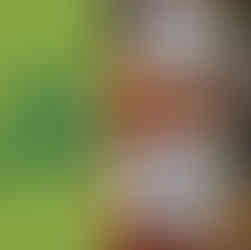Nutrition Nightmare
- rymerws
- Oct 22, 2018
- 3 min read
Updated: Apr 25, 2020
I have just spent the best part of my Sunday evening writing a long article about the types of foods that contain hidden sugars, the foods that don't immediately jump out as being unhealthy or bad for your teeth. No matter how I wrote it I couldn't really shake off the feeling that it was coming over as one of those patronising 'health reports' in the press written by a 'dental expert' or 'health guru'. You know the one, "swap cereals for natural yoghurt and chia seeds', 'try cutting back on alcoholic drinks, tea and coffee', and my favourite 'switch your child from ice cream to a funky blend of coconut yoghurt and nut butter'. NO, my two children have really good diets and are very accepting of trying new things, but if you try to swap ice cream as a treat for coconut yoghurt they would quite likely stage the sort of protest not seen since the lockout.
It is totally unrealistic to expect everyone to switch to a diet of reconstituted cardboard and goji berries with a side helping of kale and a spinach smoothie. It is terribly unappealing and good luck convincing your friends that you are happy and fulfilled if that's all you are eating. Here was a great couple of images I came across online care of fitbit.
The intention here is fantastic, but I'm not here to preach to everyone that eating a smorgasbord of green leaves and seeds from the health food shop is going to turn your life around. In fact if all I ate for three days is what is in the above three images, then I think on the fourth day it is likely my diet would consist primarily of wagon wheels and monster munch, as I spectacularly fail in maintaining this near-godliness diet.
So instead of telling everybody that their favourite foods are junk, and offer up a selection of bland mediocre alternatives, I think it is better to just arm you with the method for assessing the foods you are eating. Enabling you to accurately analyse exactly what you are eating and drinking.
Lets look instead at the nutrition information. On every label they will tell you how much Sugar there is in 100g, and that's really easy to convert into a percentage if there is 31g sugar per 100g of product its 31%, so if a similar product has only 18g per 100g then it is only 18% sugar and would be less cariogenic (less likely to cause 'holes' in your teeth).
How do you make a healthy choice in the breakfast cereal isle of the super market? Lets compare 4 popular brands of breakfast cereal and then look at one "healthy" alternative as a comparison.
By using the nutrition information we can compare each of them directly with each other to find the worst offender and the least damaging to the teeth. Also when we know that a spoon full of sugar equals roughly 4g we can work out the rough number of spoons in a serving.
Using the same test we can compare some common lunchbox snacks for school.
Using the same test we can compare some common drinks from the fridge in the supermarket.
So using this quick visual check of the nutrition information you can compare two products really easily, there are other things to consider obviously, and I'm not discounting making healthy changes to the diet. Making dramatic wholesale changes to the diet is probably not necessary, but making intelligent changes in certain areas might help to cut your risk of getting tooth decay.
If you see your dentist and they tell you that you have eight cavities and terribly worn teeth then dramatic changes may be necessary, but for most people being armed with the right technique to make a sensible change to the diet may be enough without resorting to the family being converted to the lastest 'paleo-ketogenic-raw diet' as promoted by this months beauty magazines.
Everything can be enjoyed, but in moderation. Incremental healthy changes to your diet can be helpful, but lets not throw the baby out with the bath water.












































Comments